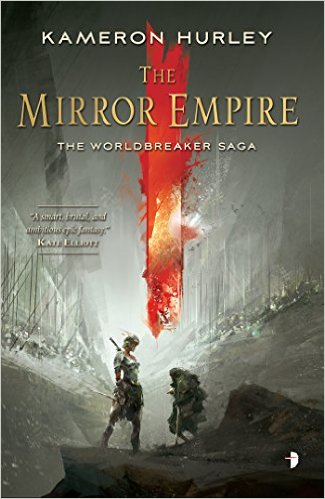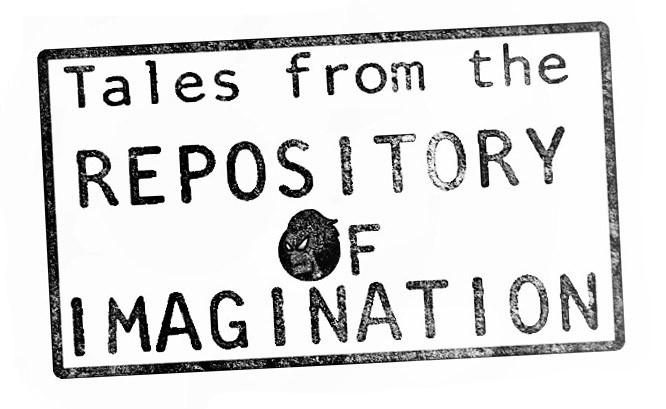Human Empire paperback cover
October 2, 2015Human Legion Publications
October 5, 2015Here’s my latest trawl through the science fiction top 20 bestseller and bestselling author charts on amazon.com The point of these posts is twofold: it’s an opportunity to celebrate what’s hot right now in science fiction in books and beyond, and I write it in chunks to give me a few minutes at a time to rest my brain from my day job of writing my own science fiction books (and with a book launch later this week, I need that occasional break). My last trawl through the charts was here, and a long-winded mission statement here.
Authors who caught my eye this time include Andy Weir, Margaret Atwood, and Kameron Hurley. Chart positions were captured on 2nd October 2015.
Top of the bestselling books was The Martian and the bestselling author was Andy Weir. No surprise there. With the movie version of his book appearing in theaters a few days ago, Andy Weir is appearing everywhere in the media and seems to be having the time of his life, as he thoroughly deserves.
With the media hype moving into overkill, it’s easy to forget how unusual it is for a blockbuster hit movie to be based on a science fiction novel, let alone one from a living author. I think the last one to do this officially was Jurassic Park in 1993. Unofficially, author Tess Gerritsen would beg to differ, and add 2013’s Gravity to the list of blockbuster movies based on novels; it’s just that New Line Cinema didn’t credit her when she claims they should have.
Sure, there have been other movies based on novels in recent years, some of them successful but not operating at the blockbuster hit movie level. The Prestige, based on Christopher’s Priest’s 1995 novel of the same name was definitely a success (though The Martian has earned the same box office in less than a week), Ender’s Game more middling (though I hope for a sequel), while Handmaid’s Tale based on Margaret Atwood’s book was a flop (but does get another mention later in this blog, which is ample compensation!)
So congratulations to Andy Weir for being top of the world.
The story behind the book is an interesting one for our times.
Andy initially wrote the book as a series of blog posts. Then he created an eBook version, which he put on Amazon at 99c because you can’t publish books there for free. This was 2012. The Kindle book did well in the amazon.com sci fi charts and attracted the notice of Podium audiobooks at the start of 2013. Andy signed a deal for his audio rights. A few months later this attracted the attention of other corporations to buy his print rights (Random House) and movie rights (20th Century Fox).
What interests me is that it was the audio publisher watching the amazon.com book charts who pounced first for the audio rights, not a print publisher. Audiobooks are not exactly new, but they are charging ahead with very high growth in recent years, and some seem more willing to embrace new models. For example, directly approaching bestselling self-published authors (such as British military SF author P.P. CorCoran ). Possibly, the audio publishers have noticed, as I have, several of the bestselling self-publishing authors producing their own audiobooks and watching as the audio edition alone goes to the top of the bestseller charts (Christopher Nuttall’s Ark Royal series, is one of the best examples).
Expect to see audio publishers throwing their weight around far more in the future, as well as major traditional publishers approaching self-publishers directly for their print rights, something Amazon has been doing with huge success in recent years with their in-house imprints, as we’ll see in a moment.
But let’s get away from self-publishers, because there’s still a whole world of exciting science fiction coming from the traditional publishers.
Margaret Atwood caught my eye earlier last week as she reached #2 in the SF book bestseller charts with The Handmaid’s Tale, on the back of a massive jump in the sales of the Kindle edition. By the time I took the chart data, her book was out of the top 20. It’s currently #37.
This is another sign of industry changes. The reason why The Handmaid’s Tale (originally published 1985) jumped so high so fast was because the normally $9.99 Kindle edition was an Amazon Deal of the Day and discounted to $1.99. Amazon would have pushed that heavily in the US. I think a lot of eBook customers recognized the book as a classic, possibly one they had read before as a paperback and thought they’d snap up while it was cheap.
 The timing can’t have been a coincidence. Atwood’s latest novel, The Heart Goes Last was released September 29th and has climbed to #31 in the bestseller charts. Meanwhile, Atwood is at #4 in bestselling science fiction authors, a massive leap for her. It’s a sign of the traditional publishers making use of Amazon opportunities to push the visibility of their authors to amazon.com customers.
The timing can’t have been a coincidence. Atwood’s latest novel, The Heart Goes Last was released September 29th and has climbed to #31 in the bestseller charts. Meanwhile, Atwood is at #4 in bestselling science fiction authors, a massive leap for her. It’s a sign of the traditional publishers making use of Amazon opportunities to push the visibility of their authors to amazon.com customers.
If you haven’t tried Margaret Atwood, I recommend doing so. Her approach is to take standard science fiction tropes and repackage them with a gloss of ‘literary fiction’. The results can be very good.
A curious feature of Margaret Atwood is that she persists in a denial that she writes science fiction at all. I don’t think anyone seriously believes that, not even herself. Luckily for science fiction readers, her publishers categorize her work as science fiction on amazon.com
Another bounce from a traditionally published genre author who didn’t quite make it into the top20 was Kameron Hurley with the opener in her epic SF trilogy, Mirror Empire. I noticed the book by chance when it was around #460 in the overall book charts and wondered why it was suddenly so high. Turned out that it had been advertised that day by its publisher on the massively influential eBook recommendation service called Bookbub. In fact the major publishing houses have spotted the power of Bookbub and are colonizing the service.
One day on Bookbub was enough to get Kameron’s book high in the sub-genre charts just in time for the release of the second book in her trilogy. As I write this words, Mirror Empire has slipped down to around #250,000 in the Kindle Store.
I haven’t read any of Kameron Hurley’s books, but I’ve heard good things about them. On the other hand, I also hear they are very demanding: you’re dumped into complex worldbuilding and left to figure it out. Now, I like that kind of thing, but I need my brain to be sharp to do so. Right now, I’m so exhausted when I’ve finished work that I’m probably not going to enjoy Mirror Empire, so I’ll leave it for another time. And that’s an important point that is frequently missed in discussions about ‘types of book fans’, or ‘my kind of science fiction is more popular than your kind’. Many real people don’t fit into any one category of reader.
I have read her blog posts, though, and find them angry, insightful, potty-mouthed and thought-provoking in equal measure. Plus Hurley discusses her book numbers, which is always interesting to see as I seek to calibrate the conflicting information I see about sales figures (which as a full-time author is kind of relevant to my business plan).
Before we finish with Mirror Empire, I want to say I think it was blessed with the best book cover of 2014.
Many book covers have so many elements that your eye doesn’t know where to rest its focus. Or an image that looks wonderful on a paperback in the bookstore is a confusing mess in the 200 pixel wide thumbnail that is so critical to success on Amazon. Mirror Empire’s cover draws the eye relentlessly to the two figures, while suggesting an epic scale of story in its background. The two figures are interacting in some way. They look unequal. But what is their relationship? We can’t tell from the cover, but that’s not the point. The picture has gotten me thinking, and that’s extremely rare for a book cover. Very well done to Richard Anderson the cover artist. You can see more of his work here.
Elsewhere in the book charts we see a huge number of new releases on Amazon’s own range of imprints. Oh, yes! Amazon publishes its own books and its 47 North imprint for science fiction, horror, and fantasy usually has something in the top20. Which isn’t surprising because Amazon knows precisely how many copies each book sells through their stores, and the list of 47 North authors is mostly comprised of already very successful self-publishers to whom Amazon made an offer they couldn’t refuse. (I’m still waiting for the call, sigh).
My, though! Look at the Amazon imprints this week. I’ve never seen this level of Amazon-domination of the SF charts before.
Infinity Lost by S. Harrison (#5) is from Amazon’s Skyscape YA imprint. The Capital of Latecomers by Nina Nenova (#7) is from Amazon’s Kindle Crossing Imprint for translations into English (Nina is Bulgarian). Here & There by Joshua V. Scher (#12) is from Amazon’s sci fi & fantasy 47 North imprint as is Heirs of Empire by Evan Currie (#18). This Is the Night by Jonah C. Sirott (#19) is from Amazon’s Little A (literary fiction) imprint.
What with the traditional publishing industry using what was once a largely self-publishing tactic of getting a short-term rankings boost through such things as Bookbub, audio and print publishers acquiring new writers by approaching self-publishers directly, Amazon’s own imprints doing so well, and the first self-published science fiction novel to make it all the way to major movie blockbuster, it all adds up to a chart that reflects the huge changes in science fiction publishing that have been ongoing the past five years.
I’ve had my last break: back to work now! Next time I’ll be checking whether these new entrants are sticking in the charts, or dropping straight out. Also, there was a bit of fuss this year about the Hugo Awards. Something to do with Sad Puppies. Some science fiction fans were arguing that the Hugos made little difference to sales because [insert your favorite reason here]. So I checked the bestseller charts when the nominations were announced, and for a few weeks after the award were awarded (or not), and have my answer ready.
Oh, and one last thing. Last time there was only one living British author in the whole of the top 100 bestselling SF authors (Christopher Nuttall at #5). That’s a poor showing. He’s still the only Brit in either of the top20s, but I’m pleased to say that he now has company in the top 100 authors. Congratulations to fellow bestselling British science fiction authors: Mina Carter (#48), Harmony Raines (#66), Steve McHugh (#68), and Jodi Taylor (#99).







10 Comments
But what about those Murican writers? If we give you back your tea will you cheer for us too, because I can swing by Boston real quick!?!?
This made me laugh, irreverent as all get out, but it did illicit a chuckle.
I’m definitely cheering for those Murican writers, Miss Priss, although I do prefer coffee to tea. I went through a brief patch (about 20 years) when I read far more American writers than everyone else put together, because it often seemed that only Americans were writing my favorite kinds of military sf and big space opera (with a handful of notable exceptions). Now that there’s the opportunity to connect writers directly with readers, I’m finding all kinds of good works coming from my home team that weren’t getting published previously. They’re almost completely ignored by the local sci fi scene, which I find a shame because I like to celebrate success and change. So I’m hoping to redress the balance a little bit without overloading the main point of this, which is that I’m simply curious to see who does well in the charts. 🙂
I thoroughly enjoyed The Handmaidens Tale, Atwood’s book was excellent and thought provoking. I am glad to see it is still being read and bought. I am also glad that the world of e-publishing is taking off, even if some well deserving writers are getting the short shrift! 😉
Viva La Revolution
Absolutely. One of the strange things about traditional publishing is that books that aren’t selling well get pulped and the work taken out of print, usually permanently. We take it for granted, but its dumb when you think of it, to throw away all those great works from before. I remember chasing down second hand bookshops to trace a copy of The Forever War, which had been out of print for many years. That was a great book, a Hugo winner too. Thing it, it never stopped being a good book, just because sales tailed off. I’m sure The Handmaid’s Tale never went out of print, but e-publishing is great for bringing back deserving books from an undeserved internment, and the big publishers are doing just that. Vive la Revolution!
Right now the big publishers are franticly trying shut the door behind them so they can bar any further entry. They don’t seem to like the indie publishers and eBook encroachment on ‘their’ turf. I think of the traditional publishers much like I think of the horse and buggy manufacturers at the dawn of the age of the automobile. Luckily innovation always wins out, so they will adapt or die.
I think they’re just waking up to what’s going on, Sgt Mike. They’ll still be around in another decade, but having adapted. I reckon we’ll see a rash of new major publisher ‘adventure’ sci fi imprints to try to recapture the readers they lost to Amazon imprints and people such as myself.
Also, I agree that there is hope that the world of ePublishing might revive and rebirth those lost works of literature which are currently being destroyed. Someone really should get on that!!!
Reblogged this on Tim C. Taylor and commented:
My most recent trawl through the science fiction bestseller charts.
[…] brain from my day job of writing my own science fiction books. My last trawl through the charts was here, and a long-winded mission statement here. Data was captured on 24th October 2015, but I’ve been […]